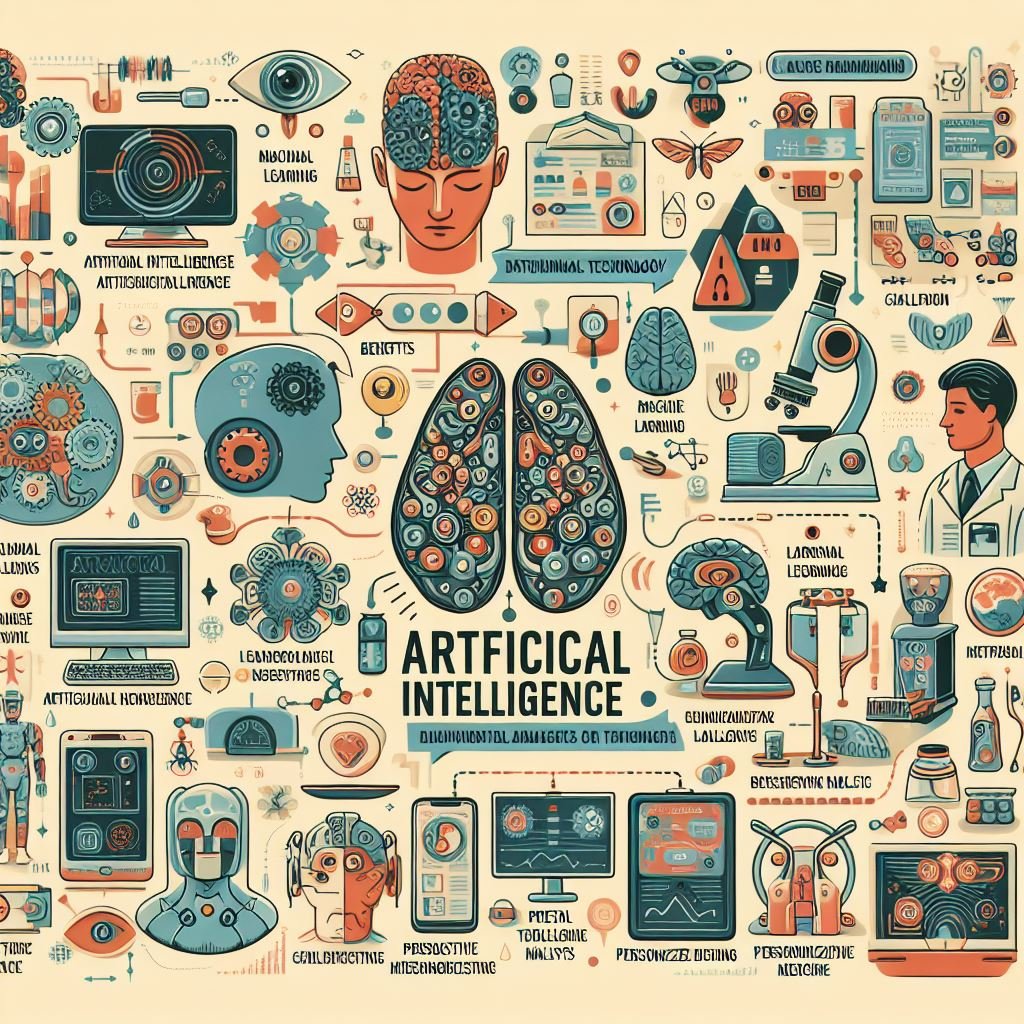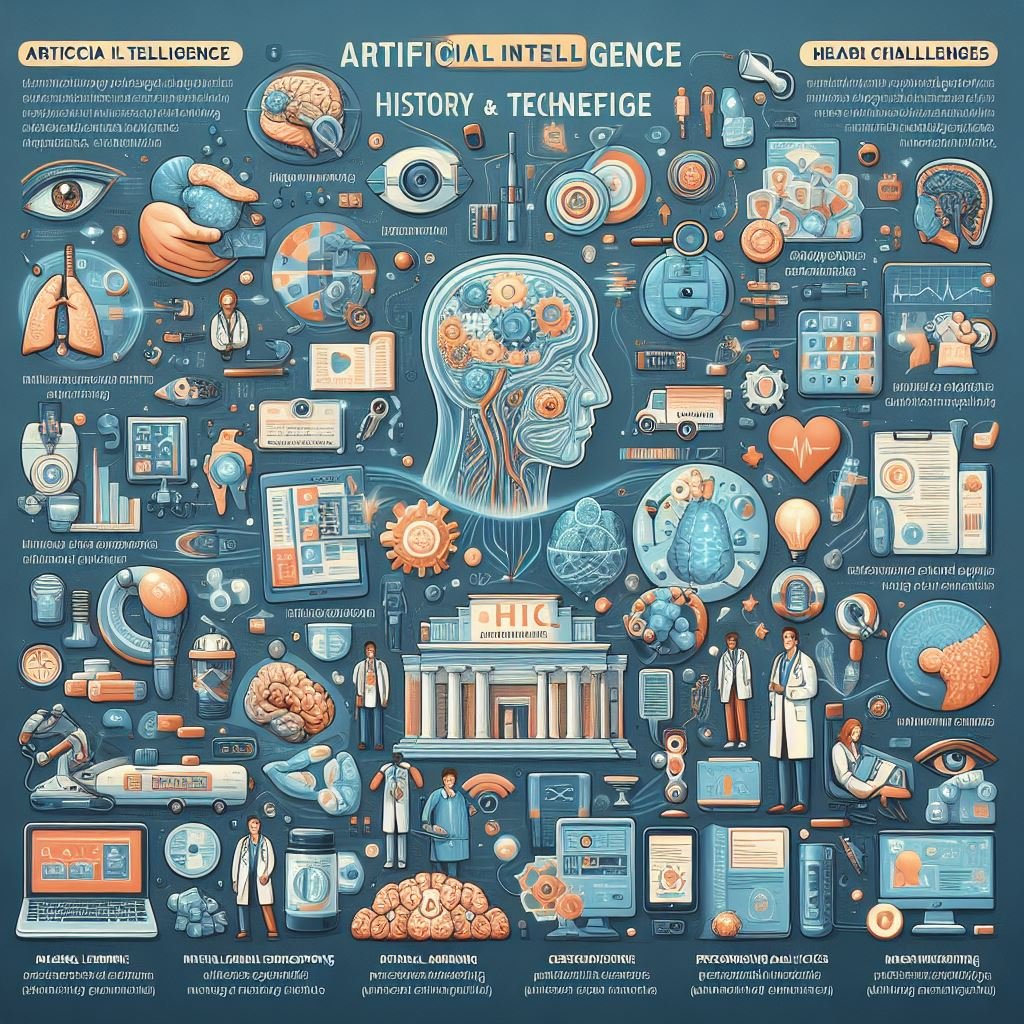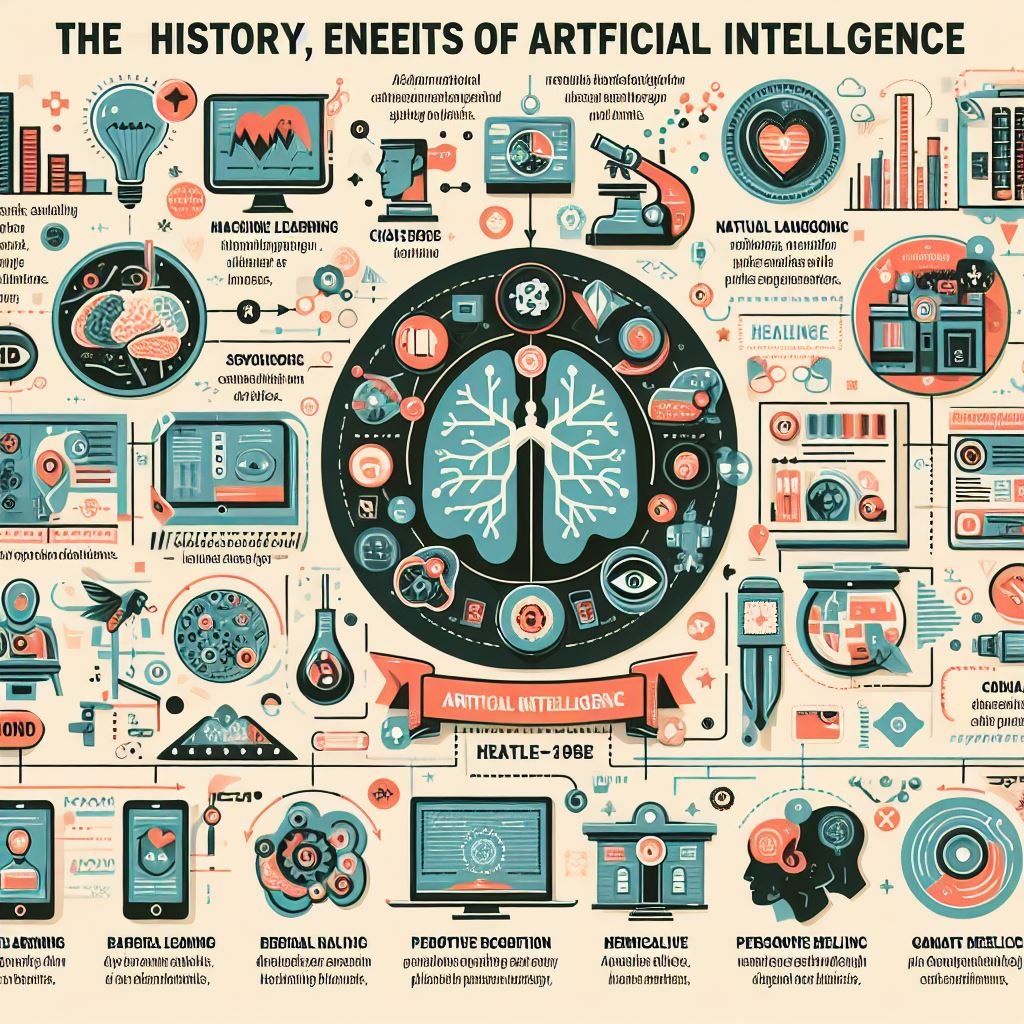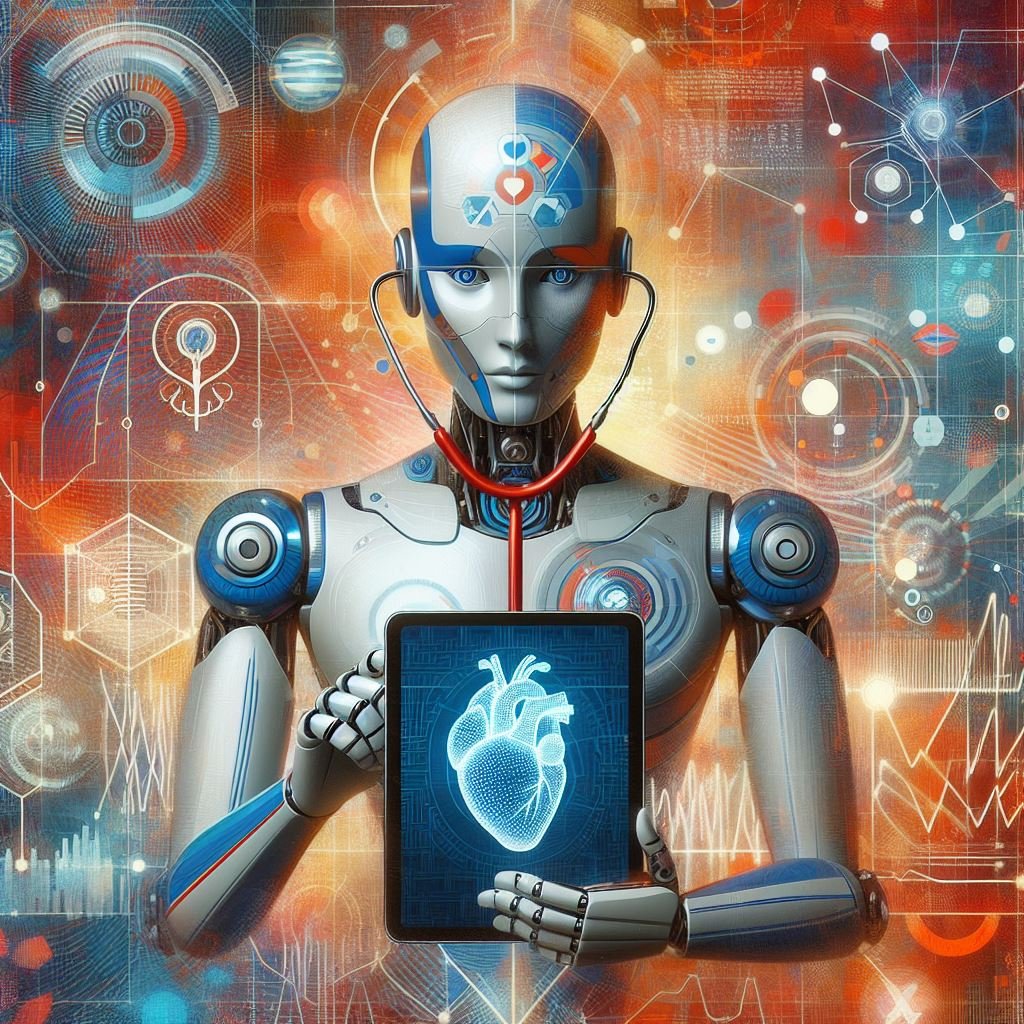Introduction
In recent years, the integration of artificial intelligence (AI) in healthcare has transformed the landscape of the medical industry. This article delves into the myriad ways AI is making a significant impact, from diagnostics to personalized treatment plans, and explores the diverse applications of AI in healthcare.
Enhancing Diagnostics with AI in Healthcare
Artificial intelligence is revolutionizing the diagnostic process, providing more accurate and timely results. Through advanced algorithms and machine learning models, AI assists healthcare professionals in interpreting medical images, such as X-rays, MRIs, and CT scans, leading to faster and more precise diagnoses. This section explores the role of AI in revolutionizing diagnostic practices.
Personalized Treatment Plans
One of the most promising applications of AI in healthcare is the customization of treatment plans. AI algorithms analyze patient data, including genetic information, lifestyle factors, and medical history, to create personalized treatment strategies. This section delves into the potential of AI to enhance patient outcomes by tailoring interventions to individual needs.
Telemedicine and Remote Patient Monitoring
The rise of telemedicine has been accelerated by AI, enabling remote patient monitoring and facilitating virtual consultations. This section discusses how AI is playing a crucial role in making healthcare more accessible, especially in remote or underserved areas.
Streamlining Administrative Processes with AI
Beyond clinical applications, AI is streamlining administrative tasks in healthcare facilities. From appointment scheduling to billing and coding, AI-powered systems enhance efficiency and reduce the burden on administrative staff. Explore the impact of AI on optimizing the operational aspects of healthcare.
Predictive Analytics for Disease Prevention
AI’s predictive analytics capabilities are harnessed to identify potential health risks and prevent diseases before they escalate. This section examines how AI analyzes vast datasets to predict outbreaks, track disease patterns, and implement preventive measures, thereby contributing to public health.
AI in Drug Discovery and Development
The drug discovery process is time-consuming and costly. AI is revolutionizing this field by accelerating drug discovery through data analysis and predictive modeling. Learn how AI is shortening the timeline for bringing new drugs to market and improving the efficiency of pharmaceutical research.
Ethical Considerations in AI-driven Healthcare
As AI becomes more integrated into healthcare, ethical considerations come to the forefront. This section explores the ethical implications surrounding AI in healthcare, addressing issues such as patient privacy, bias in algorithms, and the responsible use of AI technologies.
The Future Landscape of AI in Healthcare
What does the future hold for AI in healthcare? This section speculates on upcoming advancements and innovations, from the integration of robotics in surgery to the expansion of AI applications in mental health and preventive care.
Diverse Uses of AI in Healthcare
| Application | Description |
|---|---|
| Diagnostic Imaging | AI aids in interpreting medical images for accurate diagnoses. |
| Personalized Treatment | AI tailors treatment plans based on individual patient data. |
| Telemedicine | AI facilitates remote patient monitoring and virtual consultations. |
| Administrative Efficiency | AI streamlines administrative tasks in healthcare facilities. |
| Predictive Analytics | AI predicts disease outbreaks and identifies health risks. |
| Drug Discovery | AI accelerates drug discovery through data analysis and modeling. |
| Ethical Considerations | Exploring ethical implications in the use of AI in healthcare. |
| Future Innovations | Speculating on upcoming advancements in AI-driven healthcares. |
Conclusion
In conclusion, the integration of AI in healthcares is not just a technological advancement; it’s a paradigm shift in the way healthcare is delivered. The potential for improved diagnostics, personalized treatments, and enhanced efficiency is vast. However, as we navigate this transformative journey, it’s essential to address ethical concerns and ensure responsible deployment. The future of healthcares is undoubtedly intertwined with the continued evolution of AI, promising better outcomes and increased accessibility for patients worldwide




